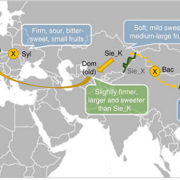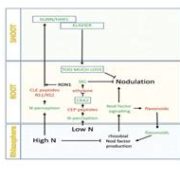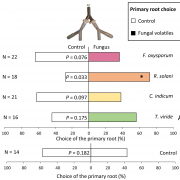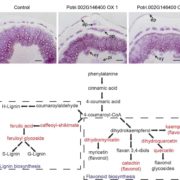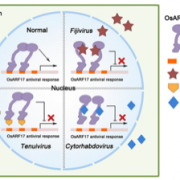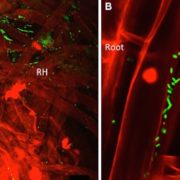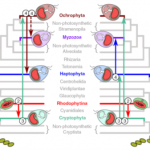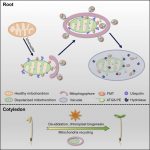Whitefly hijacks a plant detoxification gene that neutralizes plant toxins (Cell)
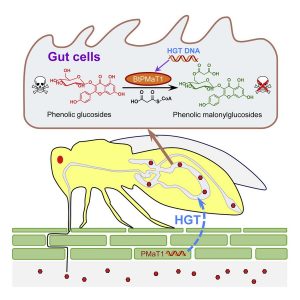 The sweetpotato whitefly, Bemisia tabaci, are devastating crop pests that lower yields and transmit viruses. They feed off more than 600 species, most of which produce toxic phenolic glycosides. Xia et al. investigated how the whiteflies manage to avoid the effects of the toxin. They found convincing evidence that this group of insects, but not their closest relatives, carry a gene encoding a BAHD acyltransferases, a class of enzymes known to detoxify phenolic glycosides. Remarkably, the nearest relatives to this insect gene are plant genes encoding BAHD acyltransferases, indicating that the insects acquired the gene from the plants they feed on. The authors showed that silencing this gene in the insects led to increased mortality upon feeding, and also demonstrated that the encoded enzyme has the detoxifying function in vitro and in vivo. Introducing dsRNA targeting the insect gene into tomato leaves enhanced resistance to the whiteflies. This study thus shows that horizontal gene transfer of a plant gene has enabled the whiteflies to overcome the plant’s own defense mechanism, but witih a little help the plant can regain the upper hand in this arms race. (Summary by Mary Williams @PlantTeaching) Cell 10.1016/j.cell.2021.02.014
The sweetpotato whitefly, Bemisia tabaci, are devastating crop pests that lower yields and transmit viruses. They feed off more than 600 species, most of which produce toxic phenolic glycosides. Xia et al. investigated how the whiteflies manage to avoid the effects of the toxin. They found convincing evidence that this group of insects, but not their closest relatives, carry a gene encoding a BAHD acyltransferases, a class of enzymes known to detoxify phenolic glycosides. Remarkably, the nearest relatives to this insect gene are plant genes encoding BAHD acyltransferases, indicating that the insects acquired the gene from the plants they feed on. The authors showed that silencing this gene in the insects led to increased mortality upon feeding, and also demonstrated that the encoded enzyme has the detoxifying function in vitro and in vivo. Introducing dsRNA targeting the insect gene into tomato leaves enhanced resistance to the whiteflies. This study thus shows that horizontal gene transfer of a plant gene has enabled the whiteflies to overcome the plant’s own defense mechanism, but witih a little help the plant can regain the upper hand in this arms race. (Summary by Mary Williams @PlantTeaching) Cell 10.1016/j.cell.2021.02.014


